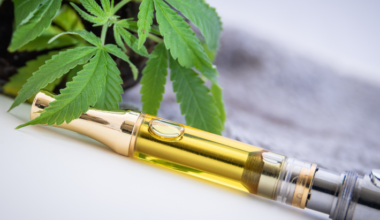
Voters in two states, Maryland and Missouri, decided in favor of ballot measures legalizing the adult-use of cannabis, while voters in various cities in the United States similarly approved measures at the ballot box ending marijuana-related arrests and prosecutions.
“While this year’s mid-term election may not have been a ‘clean sweep’ for reform advocates, our momentum continues unabated,” NORML’s Deputy Director Paul Armentano said. “Are we in a stronger place today than we were yesterday? Of course. Two more states, Maryland and Missouri, have wisely elected to legalize and regulate cannabis — policies that will expand the freedoms and civil liberties of over 7 million Americans. In addition, voters in cities across this country — including over 400,000 Texans — acted to end the senseless and counterproductive policy of arresting and prosecuting those who possess and use cannabis.
“Poll after poll shows record public support for the legalization of the adult-use of marijuana. This support is a testament to the fact that most Americans are now well aware of the failures of marijuana prohibition and the damages it continues to cause, and that the growing number of states which have enacted legalization are doing so in a safe and effective manner that is in accordance with voters wishes and expectations. In the coming weeks, we anticipate that Congressional lawmakers will move ahead with longstanding promises to advance federal reform legislation while, at the state level, we anticipate numerous governments to once again take up a variety of bills protecting and expanding the rights of those adults who consume cannabis responsibly.”
In Maryland, an estimated 66 percent of voters approved a referendum (Question 4) directing state lawmakers to establish rules and regulations governing the production and sale of cannabis to adults. By approving Question 4, voters also triggered the enactment of separate, complementary legislation (HB 837) defining marijuana possession limits and facilitating the automatic review and expungement of low-level cannabis convictions. Under the legislation, which was passed by lawmakers this spring, adults will be legally permitted to possess up to 1.5 ounces of cannabis and/or 12 grams of cannabis concentrates beginning in July 2023. (Between January 1, 2023 and July 1, 2023, civil penalties will apply.) Adults will also be permitted to grow up to two cannabis plants in their homes for their own personal use. Possessing amounts between 1.5 ounces and 2.5 ounces will be subject to civil fines, while the possession of greater quantities will remain subject to existing criminal penalties. Those with past records for marijuana-related crimes can also begin petitioning the courts for expungement relief beginning next year.
In Missouri, an estimated 53 percent of voters decided in favor of a ballot initiative (Amendment 3) legalizing the possession, cultivation, and licensed retail sale of cannabis for those ages 21 and older. Beginning on December 8, 2022, adults will be permitted to possess up to three ounces of cannabis and to home-cultivate up to six flowering plants, six immature plants, and six plants under 14 inches for their own personal use. It also establishes a program to automatically review and expunge criminal records for eligible non-violent marijuana-related marijuana offenses. The measure seeks to broaden participation in the licensed cannabis marketplace by including small business owners and those representing disadvantaged populations, including those with limited capital, residents of high-poverty communities, service-disabled veterans, and those who have been previously convicted of nonviolent marijuana offenses. Additionally, the initiative makes some improvements to the state’s existing medical marijuana access program.
Voters in three states: Arkansas, North Dakota, and South Dakota turned back marijuana legalization measures. In two states, the proposals sought to regulate commercial cannabis sales, while South Dakota’s measure more narrowly sought to end marijuana-related possession arrests.
By contrast, voters in the Texas cities of Denton, Elgin, Harker Heights, Killeen, and San Marcos all voted in support of municipal measures that largely prohibit local police officers from either arresting or citing people for Class A or Class B marijuana misdemeanors. Over 400,000 Texans reside in the cities of Denton, Elgin, Harker Heights, Killeen, and San Marcos.
In May, voters in the city of Austin overwhelmingly approved a similar local ballot measure.
Texas leads the nation in marijuana-related arrests. Under state law, the possession of two ounces or less of cannabis is defined as a criminal misdemeanor, punishable by up to 180 days in jail and a $2,000 fine. Those arrested are disproportionately African Americans.
In addition, voters in five Ohio cities — totaling some 30,000 people — similarly passed local ballot measures either reducing or eliminating local marijuana possession penalties. Those towns include Corning, Helena, Kent, Laurelville, Rushville, and Shawnee. To date, voters in some two-dozen Ohio towns have enacted similar ordinances.
For a full list of marijuana-related election results, please see NORML’s ‘Election Central’ page.
Related
Medical Disclaimer:
The information provided in these blog posts is intended for general informational and educational purposes only. It is not a substitute for professional medical advice, diagnosis, or treatment. Always seek the advice of your physician or other qualified healthcare provider with any questions you may have regarding a medical condition. The use of any information provided in these blog posts is solely at your own risk. The authors and the website do not recommend or endorse any specific products, treatments, or procedures mentioned. Reliance on any information in these blog posts is solely at your own discretion.






